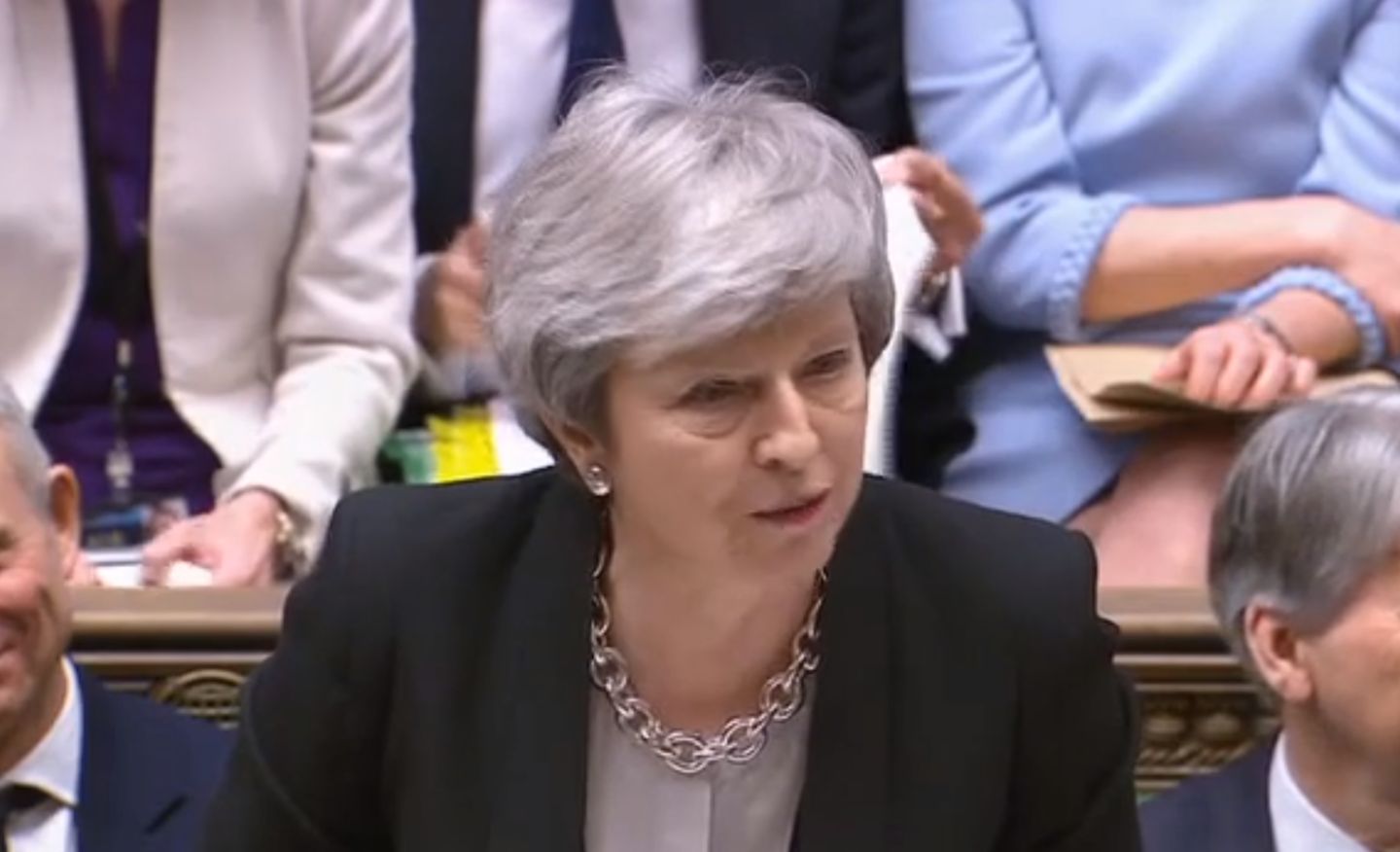Theresa May was on the offensive in an exchange over the relative merits of the UK and independent Scotland during Prime Minister’s Questions.
After SNP Westminster leader Ian Blackford suggested that Scotland might support independence in response to a No Deal Brexit, the Prime Minister listed a number of supposed advantages to staying within the UK.
She finished by claiming that there was a specific monetary advantage in the union for people in Scotland.
Ferret Fact Service looked at this claim and found it to be Unsupported.
Evidence
The Prime Minister’s claim appears to come from an HM Treasury report that was released before the Scottish independence vote.
The May 2014 report, “Scotland analysis: Fiscal policy and sustainability”, was produced to show the fiscal advantages to Scotland staying within the United Kingdom.
It concludes that there is a so-called “UK Dividend” which amounts to £1,400 per year for every Scottish citizen.
The report states, “the benefit for people in Scotland of remaining part of the UK – the ‘UK Dividend’ – is worth around £1,400 per person every year over the 20 years from 2016-17”.
To calculate this amount, the report looked at the forecasted deficit as a percentage of Scotland GDP in 2016-17, when Scotland would have become independent after a Yes vote in 2014.
This was then combined with falling oil and gas revenues, and their impact on spending, if Scotland was allocated a geographical share of reserves. The report also looked at other factors such as spending promises from the Scottish Government, predicted demographic changes, and the costs of setting up Scotland as an independent country.
The report estimated that the dividend from staying part of the UK “is equivalent to leaving each Scottish person £1,400 per year better off from lower taxes and increased public services as part of the UK”. This is not the same as each Scottish people being £1,400 richer, it is merely an averaged figure for projected spending and taxation.
In the same month, a Scottish Government report suggested that Scottish independence would lead to Scots being £1,000 better off per year.
Much of the information in both reports is now out of date. The treasury report was published more than four and a half years ago, and uses projections based on the fiscal situation in the UK in 2014.
The report also relies on costings associated with the Scottish Government’s independence white paper, which was for the referendum in 2014. It is reasonable to assume that any future blueprint would not follow the exact same policies.
The SNP has distanced itself from a number of the white paper’s policy plans, and more recent reports, such as the Sustainable Growth Commission report, launched by Nicola Sturgeon, set out Scotland’s economic plans for independence in 2018. This report was also criticised by some economic experts as setting out unrealistic projections for an independent Scotland.
Should there be another independence referendum in the future, it is unlikely that the assumptions in the 2014 White paper would be used as a basis for the campaign.
The Treasury report does not take into account the potential impact of Brexit, which is likely to have a negatively impact on the finances of the UK, in at least the short term.
Long-term financial projections are problematic due to the number of factors in play and the likelihood of economic positions changing. So long-term claims about Scotland’s future financial position should be treated with caution.
An alternative source for the £1,400 figure could be from Scotland’s GERS report, which “estimates the contribution of revenue raised in Scotland toward the goods and services provided for the benefit of Scotland”.
The difference between Scottish expenditure per person and that of the UK in 2017/18 was £1,576. It is possible the claim is linked to the year before’s expenditure figure, which is £1,448. Whilst GERS provides the best measure of current Scottish public spending available, it cannot predict the economic conditions in Scotland, were it ever to become independent at some point in the future.
Ferret Fact Service verdict: Unsupported
Theresa May’s suggestion that Scots are £1,400 better off inside the UK is misleading. While it was based on financial projections which are credible, they do not accurately reflect the potential economic position of an independent Scotland created off the back of a new referendum. We cannot definitively say what the financial impact of independence would be on individual Scots. Making long-term financial projections is extremely difficult, and such predictions should come with a health warning.

Unsupported is a new verdict for a claim that is not backed up by solid evidence and cannot conclusively be judged true or false.
Ferret Fact Service (FFS) is a non-partisan fact checker, working to the International Fact-Checking Network fact-checkers’ code of principles. All the sources used in our checks are publicly available and the FFS fact-checking methodology can be viewed here. Want to suggest a fact check? Email us at factcheck@theferret.scot or join our Facebook group.
Update: This fact check was edited to include information from the latest GERS report on Scotland spending per head.
The UK government has not provided the source of Theresa May’s statement.














